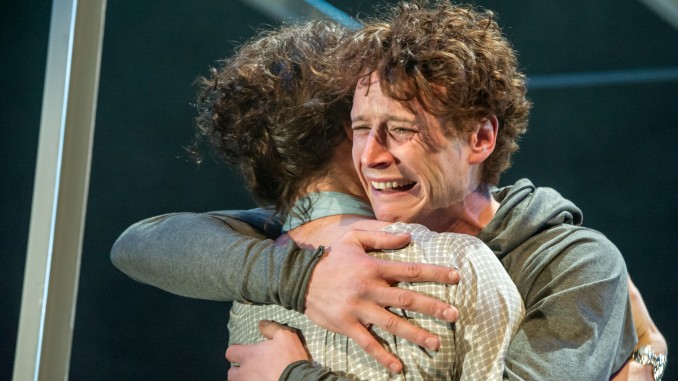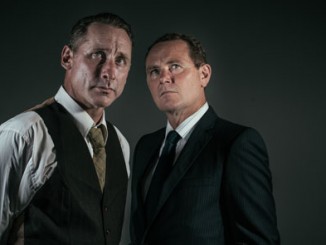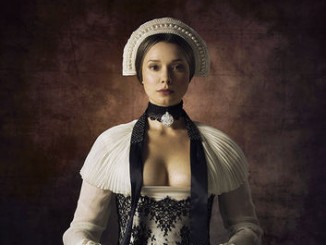
Too light [by Matt Baker]

It is the most difficult process any parent could endure, not the loss, but the unknown fate of a child. The stakes are high in Shelagh Stephenson’s script, and while Auckland Theatre Company’s production of Enlightenment has an intellectual grasp on the chaos of the play, it remains less resonant than the text allows it to be. If a scene isn’t working, it’s usually because the entrance was wrong. In this instance, director Andrew Foster and his design team offer us a definite answer to the play’s riddle in the opening, providing a false start to and an inability to connect with the circumstances of the drama.
The emotional core of this drama rests on Lia, yet Rachel Nash’s voice is trapped in her chest, preventing her from connecting with her breath and consequently her own emotional depth. As husband and stepfather, Nick, Stephen Lovatt drives the conflict of the first act, but is prevented from pursuing a true journey for his character with an under-written confrontation. Catherine Wilkin is flawless as “sensitive”, Joyce, her intellectual dexterity and strength challenging even the utmost non-believing audience member. Both she and Lovatt never once play for laughs, and in doing so provide the comedy within the script with the tenacity of their characters.
As Lia’s father, Gordon, David Aston is far too young for the role, but, more importantly, the role itself is unnecessary, and could have provided even more tension to the play had its sole purpose as a plot device been transposed onto Nick. Anna Jullienne is well cast as tenacious, truth-bending documentary-maker Joanna, though her outward strength belies her indicating as an actress. This is Jordan Mooney’s fifth production with ATC, and as such, especially with younger talent, his habits are beginning to show. The chaos is correct, but it feels ironically safe and one-noted despite the change in character.
Paul McLaney’s sound design has plenty of variety, but feels as if its abstract nature has not been developed from a central theme, as does Tom Bogdanowicz’s audio visual design. As Lia and Nick’s world is upended, so Dan Williams’ minimalist set begins to break away, until all that is left are the actors and the words. It’s a pleasing deconstruction, but less general movement throughout the transitions would make it more so.
Foster gives clear distinction to the beats and progression of the script, especially in the second act where nearly every scene offers a new twist to the turmoil, but when the complexity of the play culminates in its final scene, the tension, which should be riveting, is merely theatrically climatic. There are elements of Stephenson’s script that provide a challenge to its production, and while Foster has executed some of them well, there are too many that are brushed over or completely ignored. The final moment feels like an afterthought, and it was only upon reflection that I even recalled it happening. It’s these elements that provide the thrilling psychological aspect of the play, without them, this production remains unenlightened to the true story Stephenson has written.
Enlightenment plays at The Maidment until June 20. For details see ATC.
SEE ALSO: Theatreview.org.nz review by by Kate Ward-Smythe and Metro Magazine review by James Wenley




Leave a Reply